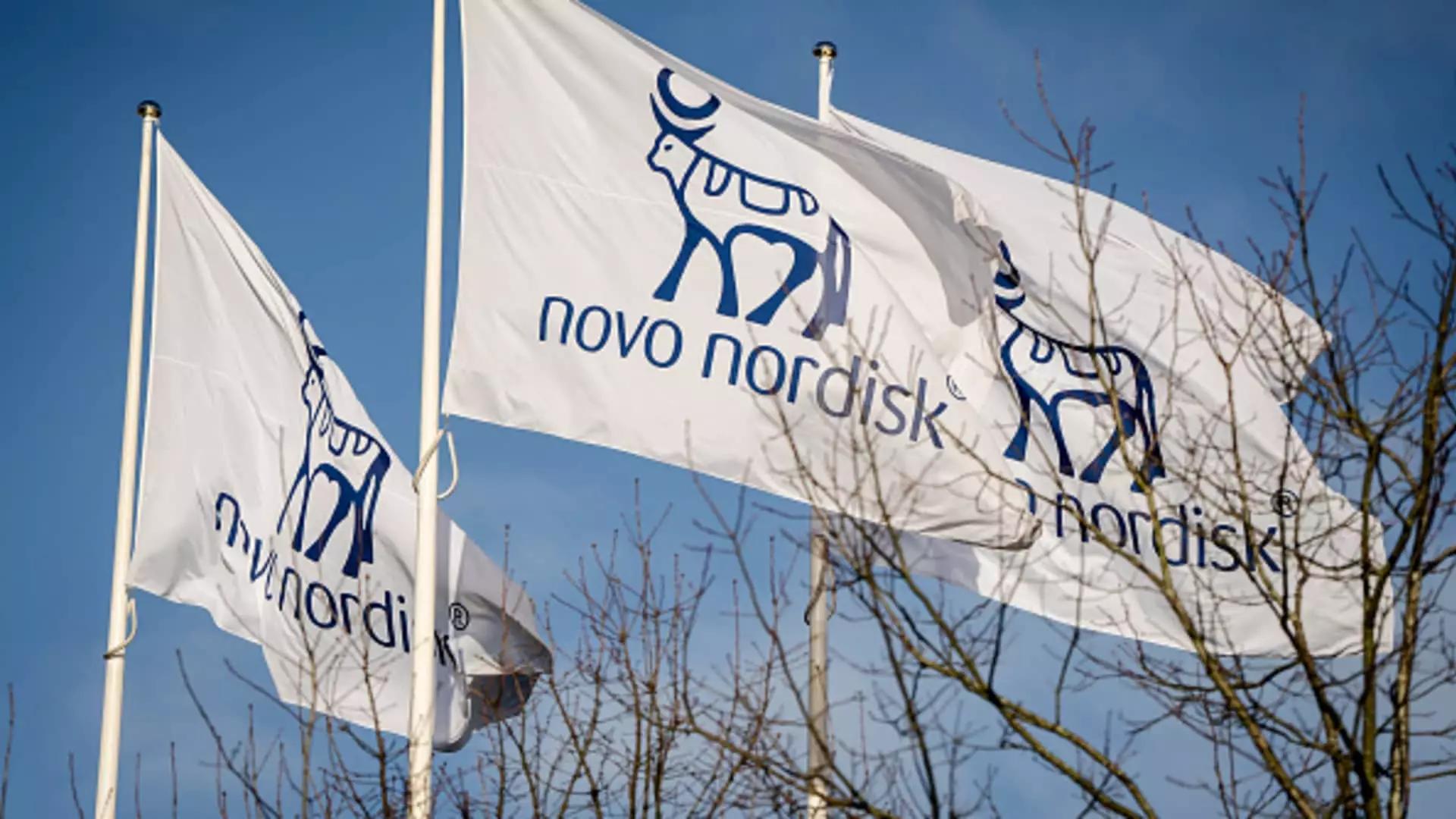In a pivotal move that could redefine diabetes management, Novo Nordisk’s Rybelsus has showcased significant cardiovascular benefits, presenting a formidable case for this oral medication in an arena traditionally dominated by injectables. Announced at the American College of Cardiology’s Annual Scientific Session, the study results reveal that Rybelsus reduces the risk of cardiovascular-related mortality, heart attacks, and strokes by an impressive 14% compared to a placebo over the span of four years. For the millions of individuals grappling with diabetes in conjunction with cardiovascular diseases, such data is not merely a statistic; it’s a beacon of hope.
The beauty of Rybelsus lies in its accessibility. Unlike Ozempic, its injectable counterpart, Rybelsus provides an alternative for those wary of needles. Not only does this appeal to patients’ comfort levels, but it also aligns with a growing trend towards patient-centric healthcare, where treatment choices are tailored to individual preferences and needs. Stephen Gough, the company’s global chief medical officer, articulates this shift perfectly: “We provide that option, that you can have one or the other, depending on what the patients and the healthcare professional think is right in that joint discussion.”
The Clinical Triumph of Rybelsus
The trial involving over 9,600 patients aged 50 and older laid the groundwork for Rybelsus’s outstanding performance. Both treatment groups were subjected to standard regimens throughout the study, with a notable portion receiving therapies like SGLT2 inhibitors—an innovative approach aimed at lowering blood glucose levels in adults with Type 2 diabetes. The findings revealed that 12% of participants receiving Rybelsus faced cardiovascular events compared to 13.8% for the placebo group. This outcome echoes results from previous injectable GLP-1 trials, reinforcing Rybelsus’s standing alongside established treatments.
Jumping into the nitty-gritty, Rybelsus asserted a 26% reduced risk of non-fatal heart attacks, a compelling statistic that underlines its effectiveness and drives home the reality that oral medications can wield similar, if not superior, benefits to their injectable brethren. Moreover, the pill diminished non-fatal strokes by 12% and cardiovascular-related deaths by 7%. It’s remarkable how a single medication can extend lifelines while catering to the preferences of those who dread needles, thus addressing both health and psychological barriers in treatment acceptance.
The Implications for Patient Care
The implications of Rybelsus’s findings are monumental. As more patients seek alternatives to injections, especially those with a fear of needles or gastrointestinal discomfort from other treatments, the introduction of an effective oral solution marks a turning tide in diabetes management. Dr. Gough’s insights highlight a critical dialogue in modern medicine; by actively involving patients in treatment discussions, the healthcare industry moves towards a model where choices are both informed and empowered.
However, while the results indicate significant cardiovascular benefits, it’s essential to note that the trial was primarily focused on cardiovascular outcomes rather than renal function. Although kidney-related issues did not vary significantly between the two groups, the emphasis on cardiovascular health speaks volumes about the growing recognition of heart disease as a comorbidity in diabetes patients. This dual focus may shape future drug development, prioritizing holistic health instead of segmented treatment regimens.
Living with Side Effects
Gastrointestinal side effects—such as nausea, diarrhea, and constipation—were the most common adverse reactions reported during the study. Yet, these side effects seldom discouraged patients from adhering to the treatment regimen, suggesting that the cardiovascular benefits outweighed the discomfort. This assertion raises critical questions about how to best inform patients of potential side effects while still advocating for the life-changing consequences of proper diabetes management. Emotional and psychological readiness plays a significant role in how patients perceive and handle these side effects.
In a landscape where multiple pharmaceutical companies, including Eli Lilly, are racing to develop their own oral GLP-1 alternatives, the Rybelsus trial sets a high benchmark. As we navigate the complexities of diabetes, there is a palpable shift toward the acceptance of oral medications that offer similar efficacy to injectables. The market is poised for evolution, and Rybelsus’s success may just inspire a plethora of innovative treatment options in the near future.
It’s crucial to remember that advancements like Rybelsus represent not merely clinical data points but significantly improve patients’ daily lives. The ease of taking a pill versus managing the logistics and discomfort of an injection can lead to better adherence and, ultimately, enhanced health outcomes. As the pharmaceutical industry innovates and expands the options available to patients, one thing is clear: the landscape of diabetes treatment is changing, and for the better.

Leave a Reply